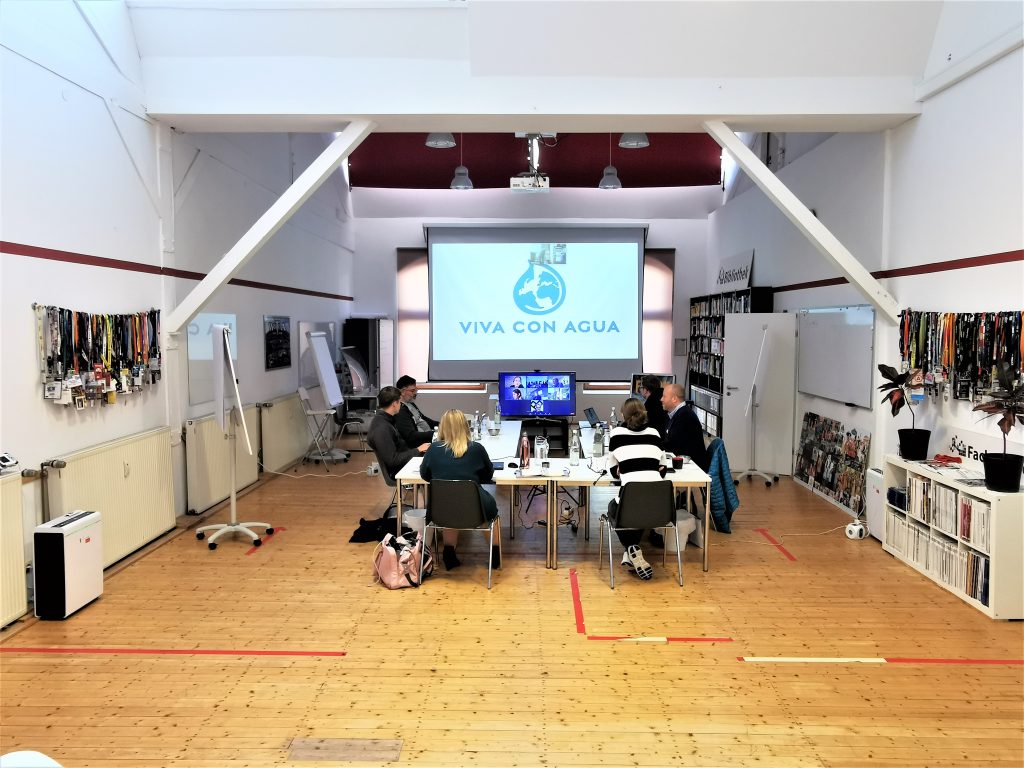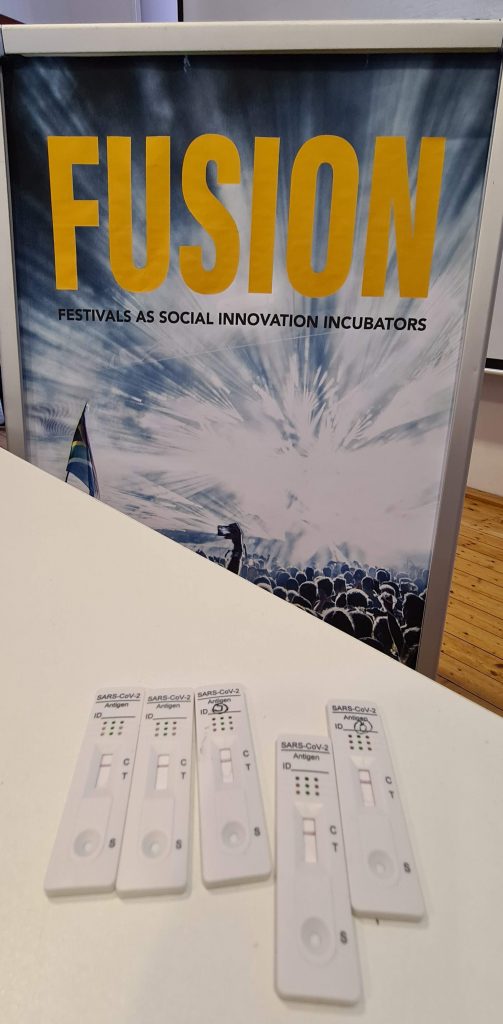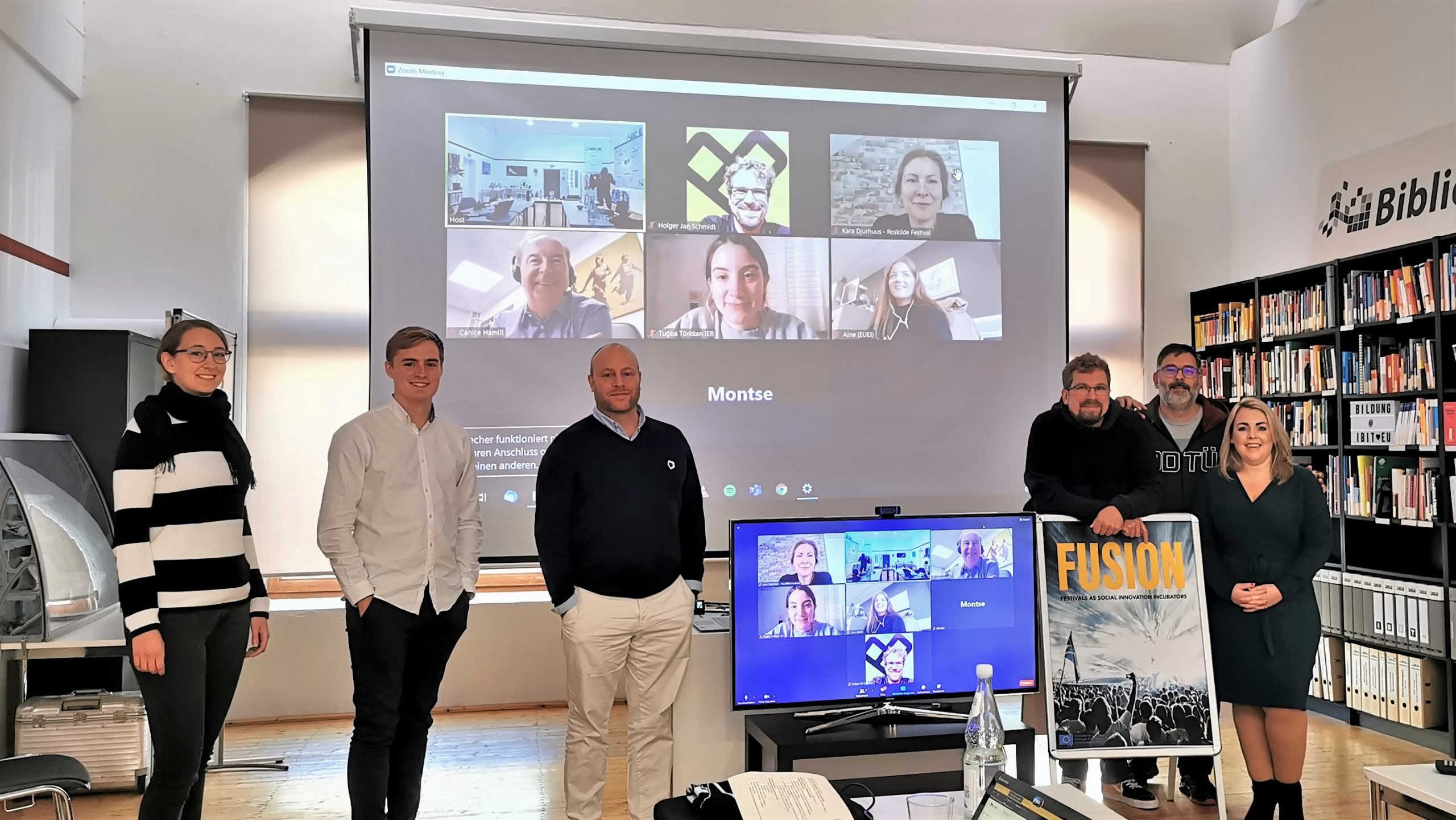Welcome to Bonn: This was FUSION’s first in-person partner meeting
Inspiring stories, brewhouse dinners and Beethoven trivia: The first FUSION partner meeting in Bonn served as a welcome breather between COVID waves. It helped in finding the right focus for the project and gave the international guests some insight into the life in Germany’s former capital.
By Katharina Weber
Traveling is a vital part of all Erasmus+ projects. At some point, every organization involved in the project invites the other partners to a meeting in their respective home country. “Transnational Partner Meeting” (TPM) is what they’re officially called. They are used to work on the project, of course, but also to get to know the project partners outside of work meetings, to broaden one’s horizon, and to experience life in another culture.
At least, this is how it should be. We all know what happened – along came the COVID-19 pandemic, and suddenly trivial things like traveling became next to impossible. For FUSION, it was anything but natural that the first TPM of the project could finally take place in early November 2021, six months after project start. In a short breather between COVID waves, lead partner Take a Stand/Delta1 had invited the other five partners from Spain (Backslash), Ireland (Momentum), the UK (Canice Consulting), Denmark (Roskilde Festival) and Turkey (Istanbul Economic Research Institute) to its office in Bonn, Germany. Not everybody could make it, given the circumstances, but at least some partners from Ireland, Berlin (Delta1 office) and Turkey found their way into the former capital of Germany.

They were received by their host Holger Jan Schmidt (initiator of the social awareness movement Take a Stand, head of the festival association YOUROPE) and his assistant Katharina Weber with a dinner on Monday, November 8th. The chosen location was a brewhouse typical for the region around Bonn, which is called Rhineland, after the river of the same name. On the menu: sauerbraten, potato fritters and specialties like “Himmel un Äd” (blackpudding with mashed potatoes).
There, the guests also learned why Haribo gummy bears were a part of their welcome gift: the now world-famous company was founded in Bonn a hundred years ago. More trivia: Another renowned “export product” from Bonn is the legendary composer Ludwig van Beethoven, who was born there in 1770.
While the remaining partners missed out on the dinners on Monday and Tuesday, they could at least participate in the work part of the TPM: on Tuesday and Wednesday, they joined the Bonn group via Zoom, turning the TPM into a hybrid meeting. Quite the technical challenge, as it turned out! Luckily, it was finally solved with a little help from IBIT, the event safety firm which shares an office with Schmidt.

The one-and-a-half-day long meeting was packed with topics in need of discussion: branding, website, social media channels, quality management, dissemination. The partners had to come up with a few concise sentences capturing the vision and mission of the project, they had to find their definition of the elusive concept of social innovation and understand the role that festivals play in encouraging young people to become socially active. The main goal: get the focus right.

To find inspiration, project partner Roskilde Festival – the biggest festival in Denmark – gave examples of own social projects. “Pipaluk’s long table dinner” gave a girl named Pipaluk the chance to show her difficult life journey – from being a foster child from Greenland to becoming a successful chef – in the form a three-course-menu for festival visitors. In the project “Kalle’s boys”, young homeless people meticulously clean up every bit of trash after the festival – in exchange for a salary, shelter and accommodation.
On day two, more questions about the three Intellectual Outputs (IOs) of the project were discussed: what should be part of the All You Need to Know Guide on social innovation at festivals (IO1), what of the Reach and Teach Toolbox (IO2)? How do they differ from each other? And what will the planned alliances on social innovation at festivals (IO3) look like?
In the end, the TPM’s goal to get the project focus right was achieved: FUSION brings festivals and social issues together, the participants found. The project enables festivals and youth organizations to collaborate and unlock their potential for social innovation by providing them with a tailored suite of resources. The goal is that, in the future, it will be common for festivals to act as social innovation incubators. They will empower young people to realize their potential to change society and will inspire them how to tackle social issues in innovative ways beyond the scope of the event itself.
Naturally, some questions remained. How many tools will the toolbox have? What will be the official names of guide and toolbox? Questions to be answered at the next TPM – when Roskilde Festival invites the partners to join them during the actual event in June 2022.
